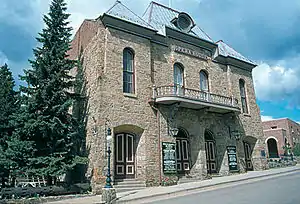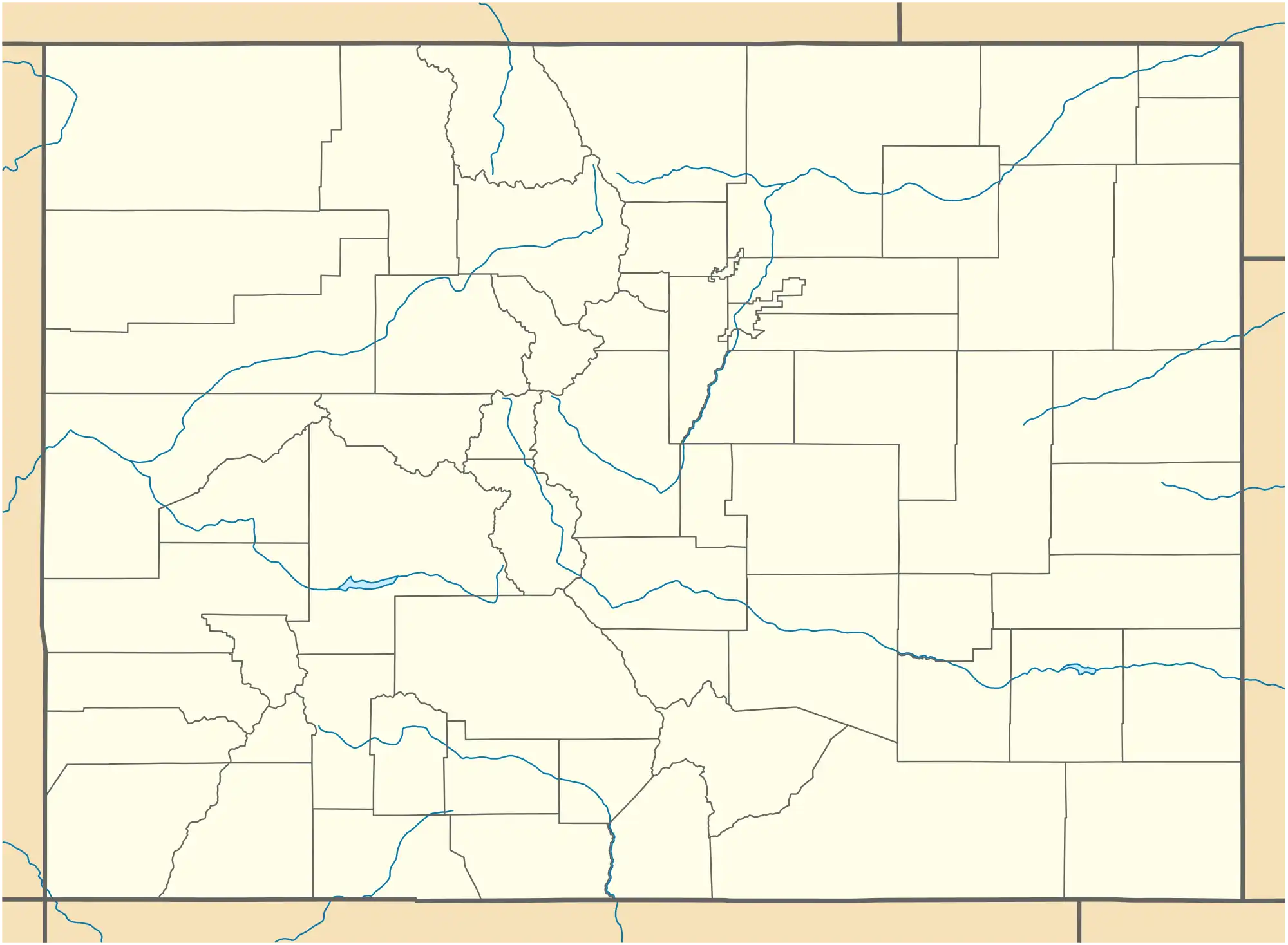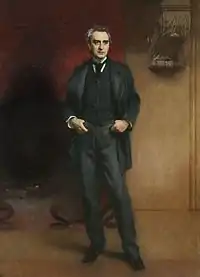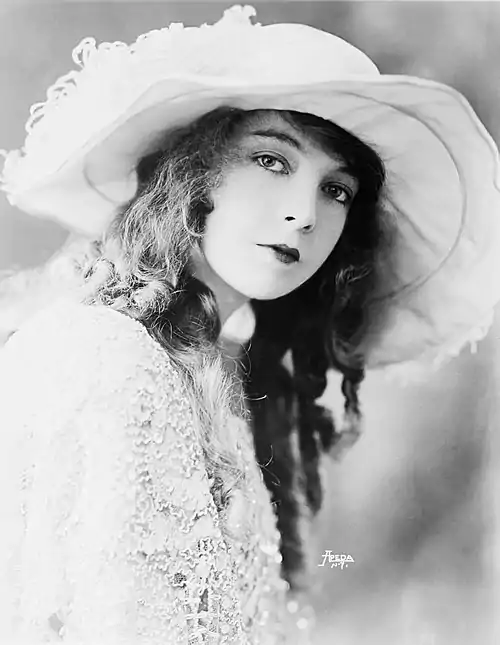Central City Opera House
The Central City Opera House is located in the Central City/Black Hawk Historic District in Central City, Colorado, United States. It was constructed in 1878.[3] It has offered operatic and theatrical productions that drew prominent actors and performers in the late 19th-century, and in the early 20th-century it was a motion picture theater.
Central City Opera House | |
 The Opera House in 1982 | |
  | |
| Location | Eureka St., Central City, Colorado |
|---|---|
| Coordinates | 39°48′4″N 105°30′47″W |
| Area | 1 acre (0.40 ha) |
| Built | 1878 |
| Architectural style | Renaissance Revival[1] |
| NRHP reference No. | 73000474[2] |
| Added to NRHP | January 18, 1973 |
The opera house was designated to the National Register of Historic Places in 1973.[1][lower-alpha 1]
Construction and subsequent renovations
In 1877, the citizens of Central City formed the Gilpin County Opera House Association to fundraise for the state's first opera house.[1][6] Denver architect Robert S. Roeschlaub designed the Renaissance Revival stone and brick structure,[1] with a crescent-shaped balcony and arched windows.[7] San Francisco artist John C. Massman painted a mural to the ceiling with a central medallion that features the sky, surrounded by a large geometrical patter, and trompe-l'œil architectural moldings.[1]
It was built by Welsh and Cornish miners and town residents, who had a tradition of music.[8][9] The opera house is kept cool during the summer by a creek flows that through a flume under the building.[7] Electricity was installed in 1896 and it was renovated, without structural changes, in 1903.[1]
In 1929 a dedicated band of Denver preservationists and music lovers formed the Central City Opera House Association to perform a renovation and re-open the opera house. It was a volunteer-driven effort led by Ida Kruse McFarlane, Edna Chappell and Anne Evans that resulted in an extensive restoration of the Opera House in 1932.[6] In the 1980s and 1990s, the entire structure was restored, including the foundation and replacement of the 1920-era lighting relic by a computerized lighting system. In 1999, wooden chairs were replaced with plush new theater seating.
Productions and cinema

With the 1878 grand opening, Central City was Colorado's cultural capital until another opera house, Tabor Grand Opera House, opened in 1881. The Opera House was not turning a profit and it expanded its repertoire to include theater productions to increase its revenues. They featured prominent 19th-century actors such as Joseph Jefferson, Edwin Booth, Madame Januschek and Fannie Barlow.[1] In addition, Buffalo Bill performed here as well as P. T. Barnum's circus.[6][10]
Peter MacFarlane, who was a contractor for the original construction and the contractor for the 1903 renovation, became the principal owner of the Opera House by 1910, when he opened it as a motion picture theater. The Opera House closed in 1927.[1]

The opera house was donated to the University of Denver in May 1931 by MacFarlane's heirs and restoration was organized by the newly formed Central City Opera House Association.[1] The summer of 1932, actress Lillian Gish opened the newly restored opera house with Camille.[1][6] It began a tradition of offering summer opera and theater festivals, which have become nationally recognized.[1]
_(16165089663).jpg.webp)
The Central City Opera company was also formed that year.[11] It is the fifth oldest opera company in the United States.[8] One of its popular performances is The Ballad of Baby Doe, which tells the story of wealthy mine-owner Horace Tabor and his second wife Baby Doe Tabor. It was first performed in 1956.[7] In 2001, it was the first opera company in the United States to produce Gloriana of Elizabeth I by Benjamin Britten. Gioachino Rossini's The Barber of Seville was performed by the Central City Opera in 2015.[12]
Samuel Ramey and Beverly Sills have performed at the opera house. It was noted by Daniel Rule, who managed the Central City Opera company, that 29 of the performers of the Metropolitan Opera in New York had performed at Central City. The Central City Opera House Association owns 30 Victorian houses in town that are used during the summer to board singers who perform at the opera house.[7] Up until 2000 all of the operas were performed in English. Central City Opera now performs all of its operas in their original languages.[7]
The opera house continues to offer several operatic productions each summer and screenings of silent and classic films.[12][13]
Popular culture
It was a film location for the movie The Duchess and the Dirtwater Fox starring Goldie Hawn and George Segal.[10]
It was also referenced in chapter 9 of On the Road by Jack Kerouac, mentioning the opera Fidelio and interactions with the performers in a wild night in Central City as the western opera world intersected with the Beat Generation.
Notes
- There are some sources that state that the opera house was made a National Historic Landmark in 1973.[4] It is the entire Central City/Black Hawk Historic District that is on the list of National Historic Landmarks in Colorado.[5]
References
- Liston E. Leyendecker (January 13, 1973). "National Register of Historic Places Inventory/Nomination: Central City Opera House". National Park Service. Retrieved June 15, 2018. With accompanying photos
- "National Register Information System". National Register of Historic Places. National Park Service. March 13, 2009.
- Leggett, Ann (August 18, 2009). Insiders' Guide® to Boulder and Rocky Mountain National Park. Rowman & Littlefield. p. 171. ISBN 978-0-7627-5624-7.
- Fisher, James (April 16, 2015). Historical Dictionary of American Theater: Beginnings. Rowman & Littlefield Publishers. p. 99. ISBN 978-0-8108-7833-4.
- "National Register of Historic Places Inventory-Nomination" (pdf). National Park Service. July 1990.
- Robert L. Brown (1994). Central City and Gilpin County: Then and Now. Caxton Press. pp. 173–179. ISBN 978-0-87004-363-5.
- Arsone, Sarah (June 10, 1990). "Grand Opera In a Colorado". The New York Times. Retrieved June 16, 2018.
- Loomis, Christine (August 1, 2016). Colorado Off the Beaten Path®: Discover Your Fun. Globe Pequot Press. p. 18. ISBN 978-1-4930-2634-0.
- Satterthwaite, Ann (February 23, 2016). Local Glories: Opera Houses on Main Street, Where Art and Community Meet. Oxford University Press. p. 207. ISBN 978-0-19-939256-8.
- Heim, Michael (2007). Exploring Colorado Highways: Trip Trivia. Exploring America's Highway. p. 81. ISBN 978-0-9777301-0-0.
- Smith, Craig A. (May 1, 2015). A Vision of Voices: John Crosby and the Santa Fe Opera. University of New Mexico Press. p. PT62. ISBN 978-0-8263-5576-8.
- Leggett, Ann (August 18, 2009). Insiders' Guide® to Boulder and Rocky Mountain National Park. Rowman & Littlefield. pp. 172–173. ISBN 978-0-7627-5624-7.
- Compton, Jeffrey (March 17, 2014). Arts America: Enjoying the Best Art Museums, Theater, Classical Music, Opera, Jazz, Dance, Film, and Summer Festivals in America. Huntington Press Inc. p. 354. ISBN 978-1-935396-04-8.
Further reading
- Baker, Roger (2007). Before Camille: The First Fifty-five Years of the Central City Opera House and Theater in Central City. Black Hawk Publishing.
- The Central City Opera House Association (October 2013). The Glory That Was Gold: The Central City Opera House, a Permanent Memorial to Colorado Pioneers. Literary Licensing, LLC. ISBN 978-1-4940-1885-6.
- Lotito, Robert F. (1977). Central City Festival Productions, Denver Opera Productions [1932-1977]. Central City Opera House Association.